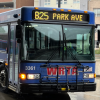Phoebe Walker was speaking on behalf of public health officials in western Massachusetts when she testified Thursday before the state legislature’s Committee on COVID-19 and Emergency Preparedness and Management.
"In a word, we are exhausted,” she said. “One person I recently talked to said, 'No, no, I'm not at the end of my rope. I was at the end of my rope in June. Now I've been in free fall for the last six months.'"
Walker is the director of community services at the Franklin Regional Council of Governments, which serves the 26 towns of Franklin County.
Thursday’s committee meeting was billed as an oversight hearing on the current status of the pandemic. Walker and the other health experts who testified collectively painted a picture of an overwhelmed public health infrastructure, hospitals struggling to meet the demand of yet another surge of patients and a virus that appears to be becoming more transmissible, just as the vaccine protection is waning in those who haven’t received boosters.
“Local public health workers are burnt out from nearly two years of round-the-clock contact tracing, a massive vaccination effort, nonstop demands for information and guidance from businesses, residents and town governments, and the stress of having mask mandates become a local responsibility, and much more,” Walker said.
Walker echoed lawmakers and health experts who sent a letter to Gov. Charlie Baker this week asking him to reinstate a statewide indoor mask mandate.
She recounted one public health director who’s been hearing from residents, “Well, the state doesn't think there's a need for a mask mandate and city regulations are not laws. So we're not going to wear a mask.”
A patchwork of different mask policies from town to town is confusing to residents, she said, adding that members of local boards of health in western Massachusetts are in “extreme distress” as they struggle with whether to mandate masks, and how to enforce those mandates.
“These folks are seeing major spread in their communities. They're reading the CDC's recommendation that everyone in all of Massachusetts should be in masks indoors, and [they’re] just trying to do the right thing,” she said. “These folks are not the governor, who is protected by a police detail and the power of his office. They're sheep farmers and retired doctors and teachers who are being hammered by mask skeptics in their towns. Literally threatened, maligned, harassed.”
When there was a statewide mandate earlier in the pandemic, she said, the Department of Labor Standards responded when a business refused to comply with a mandate. But local health officials don’t have the same resources to enforce town mandates.
"There are simply not enough workers to care for the patients and to perform daily operations within our facilities."Steve Walsh, president & CEO of the Massachusetts Health & Hospital Association
Local boards of health are also struggling to meet the demand for contact tracing, Walker said. The state’s contact tracing program, known as the Community Tracing Collaborative, ended last month, leaving that responsibility to local boards of health.
“The [Community Tracking Collaborative] closed before those communities who got alternate funding were actually able to hire contact tracers,” she told the committee. “There is, as you know, a nurse hiring shortage and municipal hiring is slow even in the best of times. And so there are a lot of communities with absolutely nobody available to do any amount of contact tracing.”
A state bill signed earlier this week that disbursed federal APRA funds awarded $200 million to local boards of health. Those funds are intended to strengthen the ability of local boards of health to respond to public health crises. But the funds are intended for long-term improvements, rather than more immediate pandemic response.
It’s not yet certain what the impact of the omicron variant will be, testified Dr. Nahid Bhadeila of Boston University Medical School’s Center for Emerging Infectious Diseases Policy and Research. But she presented research indicating omicron is more transmissible than earlier variants, and vaccines may be less effective at preventing symptomatic infection.
"If you have a highly transmissible variant, it is more likely to spread quickly, to find and cause breakthrough infections, not only among people who are vaccinated — which we've already determined it might do — but it can find more people who are unvaccinated and vulnerable, as well as people who are vaccinated and vulnerable who might be immunocompromised,” Bhadelia said. “And so the sheer number makes it so that we have to worry about potential impact and hospitalizations, because even a smaller percentage of a big number is still a big number."
The number of omicron cases in New England right now is almost certainly higher than what’s been reported so far, Bhadelia said.
Though she said she understands why some people might ask why a statewide mask mandate would be necessary in such a highly vaccinated state, Bhadelia said the new variant warrants action.
“Omicron has changed the equation,” she said. “If the transmission is increasing and if people who had prior infections could get reinfected again, and if some level of people who are vaccinated could see their protection against severe disease go down, and all of this is happening so fast, is it really that hard to require people to wear a piece of cloth — or a good quality mask, I would suggest — at least in a short period of time?”
A possible surge of new cases as a result of the omicron variant, as well as an expected surge from holiday gatherings, could add a significant strain to an already stressed hospital system in the state.
"Hospital capacity is stretched more than it has ever been since the beginning of the health care emergency,” Steve Walsh, president & CEO of the Massachusetts Health & Hospital Association told the committee. “We have avoided the dire scenarios that are being seen in other states. But capacity is a challenge every single day."
There are several reasons for the capacity problems, on top of the surge in COVID patients, he said.
"We have lost 500 inpatient beds over the course of the pandemic because of staffing challenges,” Walsh testified. “There are simply not enough workers to care for the patients and to perform daily operations within our facilities.”
That’s a national problem, he said, and it includes staff from across hospitals, from nurses to administrative staff.
“Any position that you look at within a facility is in need,” he said. “And after two years of fighting this virus, our caregivers are simply exhausted."
Also, Walsh said, there are more patients in the hospital now for non-COVID reasons, because they deferred care for other health problems as a result of the pandemic.
“Now these folks are coming back to the hospital and they are really sick,” he said. “The care is really complex and the wait time is longer than it's ever been before ... and it makes it harder to get them through the process and ultimately discharge them.”
Another problem making it harder to move patients out of hospitals, he said, is an “incredibly acute” staffing shortage in emergency transportation.
“So as we look to transition people home or to an post-acute setting or to a long term rehabilitative facility, it's harder to move them and that slows the whole flow,” Walsh said. “And then people back up to the [emergency department]. And these pressures will continue.”
Shortages in the system for treating psychiatric patients are also causing a backup in emergency rooms, Walsh said.
"The behavioral health challenge is the epidemic within the pandemic,” he said. “There are more patients that are seeking psychiatric care right now and overloading hospital emergency departments than we have ever seen before.”
There were 620 patients in Massachusetts hospital beds waiting for a placement in an inpatient psychiatric setting as of Dec. 6, Walsh testified. That will be somewhat alleviated, he said, by 300 additional behavioral health beds that are being set up with new state funding. And beginning this week, he added, temporary behavioral health workers will be contracted to help meet the state’s demand.
When asked by state Sen. Cindy Friedman what the Legislature could do to help hospitals, Walsh said some health care workers are concerned they no longer have the same protection from liability that they were granted early in the pandemic.
“You do have frontline workers that are getting increasingly nervous as numbers are increasing in their emergency departments and within their units, that they don't have the same protection they had when they were seeing multiple patients on various care teams, sometimes working out of their trained area in order to help the whole team, sometimes being retrained to work in a facility that might be outside of the hospital,” he said.
New state legislation, he said, could provide healthcare workers with a reassurance that they can work under these unusual conditions.







